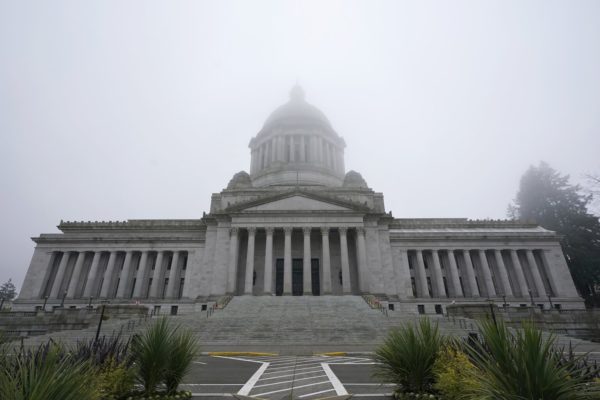 Something big happened on Wednesday! The House Finance Committee of Washington’s State Legislature, led by Chairwoman Noel Frame, approved a Wealth Tax on the extraordinary investment holdings of billionaires. This is a major step toward a more fair state tax system, capable of supporting the services we all need to thrive together.
Something big happened on Wednesday! The House Finance Committee of Washington’s State Legislature, led by Chairwoman Noel Frame, approved a Wealth Tax on the extraordinary investment holdings of billionaires. This is a major step toward a more fair state tax system, capable of supporting the services we all need to thrive together.
Washington is one of the country’s most affluent states, ranking fourth in GDP per capita. And yet, as incomes and wealth for those at the top have accelerated, poverty has deepened. Washington’s tax system prevents the state from turning its affluence into truly shared prosperity. Through good times and bad, Washington has continued to underfund K-12 education, higher education, child care, public health, and behavioral health care. Our state seems powerless in the face of persistent homelessness and growing housing insecurity.
A key reason for Washington’s failure to achieve shared prosperity is the state’s unfair tax system. Year after year, Washington’s outdated tax structure puts the state at the bottom of the fifty states, in terms of tax equity, and at the top, in terms of a tax system favorable to the ultra-rich. A more equitable tax system would include Washington’s most affluent residents in building prosperity for all. The wealth tax does just that, ensuring that the very wealthiest people in our state, who have seen their wealth grow by over $200 billion during the pandemic, will contribute to the public services which can enable all of us to have a good and secure quality of life.
The action of the House Finance Committee makes our state a pathfinder in remedying the polarization of wealth, income, and privilege which has starved public investments over decades.
House Bill 1406 would assess a 1% tax on the value of stocks, bonds, and other intangible assets in excess of $1 billion held by our state’s wealthiest individuals. It would raise $5 billion per biennium beginning in 2023-25 to invest in childcare, public health, access to higher education, and a more equitable and sustainable economy. Combined with the new tax on extraordinary capital gains from investment wealth and funding for the Working Families Tax Credit that House and Senate Democrats and Governor Inslee have all included in their 2021-23 budget proposals, passage of the Wealth Tax would bring Washington much closer to a fair and sustainable tax structure.
More To Read
March 20, 2024
I-2111: The Income Tax Ban Is A Spectacle, but One We Can’t Ignore
A way to waste time, energy, and money, I-2111 is costing more than just taxes
February 2, 2024
What is REET and Why Do We Need to Reform It?
Washington State lawmakers have the chance to make a progressive tax more progressive and provide a permanent funding source for affordable housing
January 23, 2024
Report: Washington no longer has the most regressive tax structure in the nation
This is both cause for celebration and a call to action

Winslow P. Kelpfroth
Exactly how is wealth assessed? Presumably by the marginal cost of the most recent sale of an asset, so if Mr. Gates has a million shares, the most recent of which traded at $1000, then his wealth in terms of these shares would be $1bn. But if someone else put their million shares on the market for some reason, the marginal sale price might be considerably less, which would make Mr. Gate’s holdings substantially less, let’s say, $100M, even though he might not sell a single one of his own shares. For wealth tax purposes will this individual be taxed at $1bn or $100m? That’s the problem with wealth taxes: your assets get valued based on someone else’s profit or loss. We can argue endlessly about the value of this or that, but there’s little argument to be made about the value of cash.
Aug 10 2021 at 10:28 AM